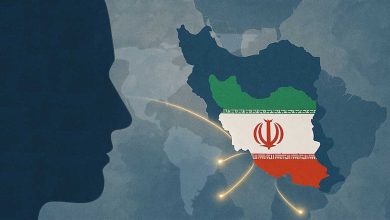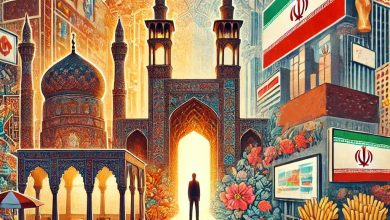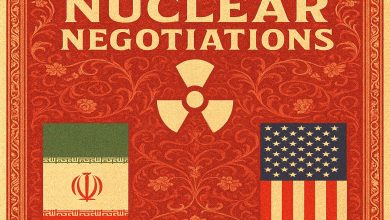The Implications of the Zangezur Corridor for Iran

The Zangezur Corridor is one of the most significant and strategic projects in the South Caucasus. If implemented, it could have profound impacts on the geopolitical and economic geography of the region—particularly for Iran—and pose a serious threat to Iran’s strategic interests. This project, which essentially creates a transit corridor between the Republic of Azerbaijan and Turkey, could potentially block Iran’s communication routes with Europe and place the country in a state of “geopolitical suffocation.” Therefore, it appears that this project goes beyond a mere economic initiative to facilitate the transportation of goods and represents a strategic plan with deep political and security consequences for Iran.
The Zangezur Corridor is a strategic passage that allows Azerbaijan to establish a land connection with its Nakhchivan Autonomous Republic. The plan entails opening a route through Armenian territory, thus enabling direct connectivity between Azerbaijan and Turkey. This project could potentially affect the border between Iran and Armenia. Previously, Baku had to use complex and lengthy routes through either Iran or Armenia to achieve such connectivity. This new route is especially significant in terms of economics, transportation, and trade, as it may reduce transportation costs and facilitate trade between Turkey and Azerbaijan.
This project is part of broader cooperation plans between Azerbaijan and Turkey, aimed at facilitating transport and trade between the two countries and expanding their influence in the Caucasus and beyond. If completed, the corridor could serve as a major transit route linking Central Asia, the Caucasus, and Europe. Economically, the goal is to streamline the transit of goods between Turkey and Azerbaijan. However, on a geopolitical level, it is a strategic plan to increase Turkish and Azerbaijani influence in the region—one that introduces numerous security and geopolitical challenges for Iran and its regional policies. Strategically, both countries aim to increase their control over the communication routes between Iran and Europe. Turkey, by controlling these routes, could position itself as a key intermediary in Iran’s engagement with global markets. It could also bolster its presence in the South Caucasus, enhancing its strategic standing in the region—developments that conflict with Iran’s strategic interests.
Currently, Iran serves as a major transit route for goods and energy in international corridors. With the establishment of this corridor, Iran risks losing part of this critical role. The Zangezur Corridor, as a new route, could serve as a substitute for Iran’s trade routes in the South Caucasus and Central Asia. Since the corridor connects Turkey directly to Azerbaijan, it could reduce the volume of trade between Iran and these countries.
The corridor could also introduce new security threats to Iran. If the Zangezur Corridor opens and Iran’s direct relations with Armenia are diminished, Iran may find itself with reduced access to South Caucasus markets. Given that Iran is currently a significant trade partner for Armenia, such a shift could negatively impact both economies. As Turkey and Azerbaijan draw closer, Turkey may gain more influence in the region, which—given its political and military history—raises concerns for Iran’s security. Furthermore, if NATO supports this project, Iran could face broader military and security activity from the West near its borders.
At present, Iran utilizes two main land and transit routes to Europe: one through Turkey and another through the Caucasus. These routes are of considerable economic and strategic importance. One of the most serious consequences of the Zangezur Corridor is the creation of a form of “geopolitical suffocation.” This refers to the scenario in which Iran, due to its geographic location and economic dependencies, becomes heavily reliant on transit routes through Turkey and Azerbaijan. Both countries could control Iran’s communication and transit lines and exert significant pressure on its economic and strategic interactions with other countries in the region and Europe.
In effect, the creation of the Zangezur Corridor would place Iran in a position where it not only loses free access to Europe but is also forced to use routes controlled by Turkey and Azerbaijan for the transportation of its goods and services. This creates a form of economic and strategic dependency on the two countries, which, under political and economic tensions, could be turned into powerful tools of pressure. Such conditions would prevent Iran from acting independently in the global trade arena and diminish its former strategic position in the region and the world.
This situation could specifically be used as economic and political leverage, compelling Iran to accept certain conditions set by Turkey and Azerbaijan. To maintain access to these routes, Iran may be forced to accept limitations or incur additional costs. This pressure could significantly impact Iran’s strategic interests and potentially lead to a form of economic strangulation.
Following recent political developments in the region, Turkey has been striving to establish itself as a regional power. It views the corridor as a tool to expand its influence in the South Caucasus and as part of its broader “New Silk Road” strategy. A direct land connection to Baku would allow Turkey not only to exploit new economic routes but also to exert political and security influence over the region.
As a NATO member, Turkey could draw political and military support for this project from the alliance. NATO, which seeks to expand its presence in the Caucasus and Central Asia as a counterweight to Russia and Iran, may not be directly involved in building the corridor, but its indirect support for Turkey could help advance its long-term interests in the region.
In response to the threats posed by the Zangezur Corridor, Iran must adopt strategies to mitigate its negative effects and maintain its regional position. Strengthening relations with Armenia and avoiding any policies that could harm Iran’s economic and security interests are essential. Armenia, which is in competition with Azerbaijan and Turkey, could remain a partner to Iran against economic and political pressure.
It is important to note that Iran’s transit through Armenia to Europe aligns with the North–South Corridor project, aimed at creating a multimodal transport route from India, through Iran and Russia, to Europe. This corridor is particularly designed to reduce reliance on transport through the Red Sea and the Suez Canal. Iran could use this corridor as a strategic tool to enhance its economic influence.
Transiting goods from Iran to Europe via Armenia could strengthen economic and trade relations between the two countries. Due to its economic and political limitations, Armenia seeks to boost relations with neighboring countries like Iran and could benefit from the economic opportunities that come with transit. This route could also help Armenia solidify its role as a significant trade hub in the South Caucasus.
For Iran, the Armenia-Europe transit route offers a major opportunity to position itself as a key player in East-West transit of goods and energy. This route could help Iran reduce its dependency on other trade corridors, resist sanction pressures, and expand its international trade.
Iran must leverage its capabilities to expand economic and transit relations with Central Asian and Caucasus countries. Through joint economic projects and transit agreements, Iran can reinforce its role as a vital regional connector. At the same time, if security threats resulting from the Zangezur Corridor intensify, Iran must strengthen its defensive capabilities along its northern and western borders and design strategic military and security responses to potential threats.
Moreover, Iran must remain vigilant about ethnic movements within its borders. Any incitement by pan-Turkist or separatist groups in provinces like East Azerbaijan, West Azerbaijan, and Ardabil could benefit the Zangezur project. Iran must preserve internal stability by reinforcing national identity and countering separatist ideologies.






